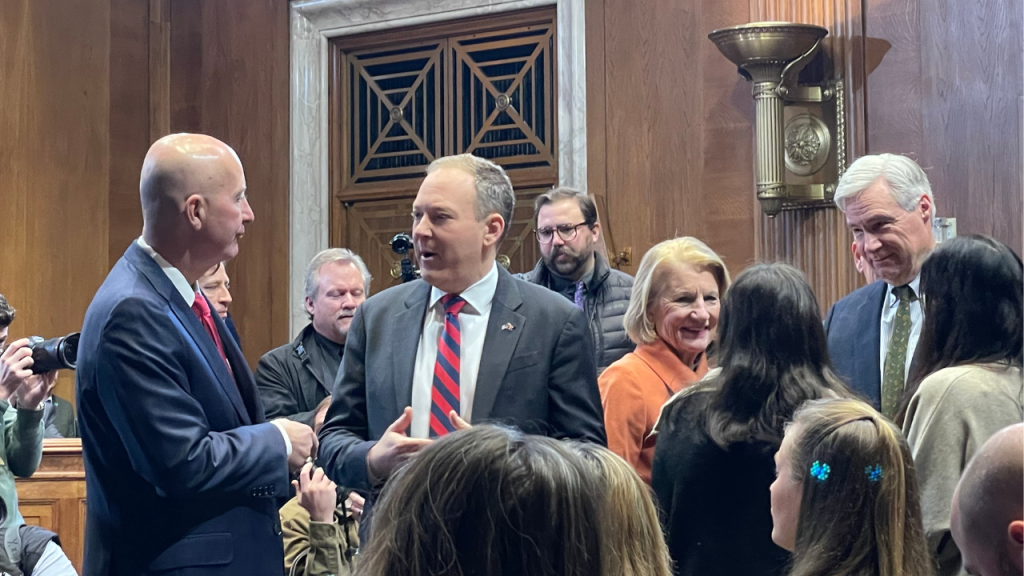Lee Zeldin’s confirmation hearing for the EPA administrator position became a battleground over climate change, with Democrats sharply questioning his views and past actions. Senator Whitehouse pressed Zeldin on his understanding of carbon dioxide as a pollutant, a fundamental concept in climate science. Zeldin’s response, differentiating between the harmlessness of exhaled CO2 and the problematic nature of larger quantities, seemed to sidestep the scientific consensus that atmospheric CO2 accumulation drives climate change. Whitehouse also highlighted the threat of rising sea levels to Rhode Island, a stark reminder of the tangible consequences of climate change relevant to Zeldin’s former coastal constituency.
Senator Sanders amplified the urgency of the climate crisis, emphasizing the record-breaking temperatures of 2024 and the preceding decade. He cataloged a litany of climate-related disasters, including wildfires, floods, and droughts, underscoring the global scale of the problem. Sanders contrasted these realities with former President Trump’s dismissal of climate change as a hoax and challenged Zeldin to articulate his stance on the existential threat posed by a warming planet. This exchange highlighted the deep partisan divide on climate change and placed Zeldin in the difficult position of navigating the differing views within his party and the broader scientific consensus.
Zeldin received some support from Republican Senator Curtis, who emphasized the potential for bipartisan cooperation on environmental issues. However, the hearing was punctuated by a ringing cell phone, prompting a sarcastic jab from Sanders about the “fossil fuel industry” calling. This incident further underscored the political tensions surrounding environmental policy and the influence of powerful interests. Senator Markey challenged Zeldin on his seemingly shifting stance on fossil fuels, contrasting his 2016 campaign statements on reducing reliance on fossil fuels with his current “all-of-the-above” energy approach. This line of questioning aimed to expose a potential lack of commitment to transitioning to cleaner energy sources.
Senator Schiff brought the discussion back to the real-world impacts of climate change, focusing on the devastating wildfires that have ravaged California. He secured Zeldin’s commitment to provide assistance regardless of the state’s political affiliation, a veiled reference to concerns about partisan bias in disaster relief. This exchange emphasized the need for a non-political approach to addressing the consequences of climate change, which affect communities across the political spectrum.
Zeldin’s opening statement emphasized his commitment to the EPA’s core mission of protecting human health and the environment, pledging to balance environmental protection with economic considerations. He emphasized the importance of fostering collaboration within the agency and highlighted his desire to leave a healthy environment for future generations. This carefully crafted statement aimed to reassure both environmental advocates and those concerned about the economic impacts of regulation. However, his low lifetime environmental voting score from the League of Conservation Voters, coupled with his past actions in Congress, raised concerns about his true commitment to environmental protection.
While in Congress, Zeldin’s record presented a mixed picture. He opposed dumping dredge waste in Long Island Sound, a positive action for local environmental health, and secured increased funding for the EPA’s Long Island Sound Program. However, his overall environmental voting record suggests a less than enthusiastic approach to environmental regulation. Former President Trump’s endorsement of Zeldin further highlighted the tension between environmental protection and deregulation. Trump’s statement praised Zeldin’s potential to “unleash the power of American businesses” while “maintaining the highest environmental standards,” a juxtaposition that reflects the ongoing debate over the appropriate balance between economic growth and environmental stewardship. Zeldin’s confirmation hearing ultimately showcased the deep political divisions surrounding environmental policy and the challenges facing any nominee seeking to lead the EPA in a highly polarized environment. His past actions and statements, coupled with the intense scrutiny from Democratic senators, raised significant questions about his ability to effectively address the pressing challenges of climate change and environmental degradation.

